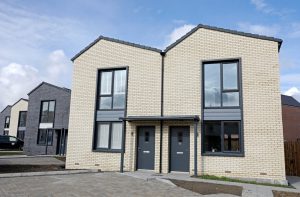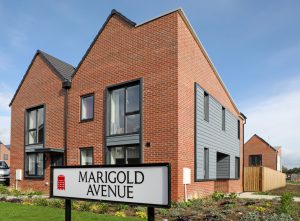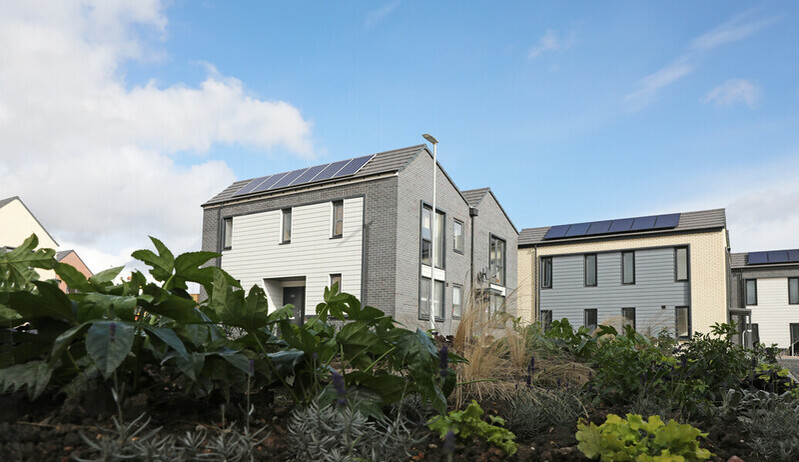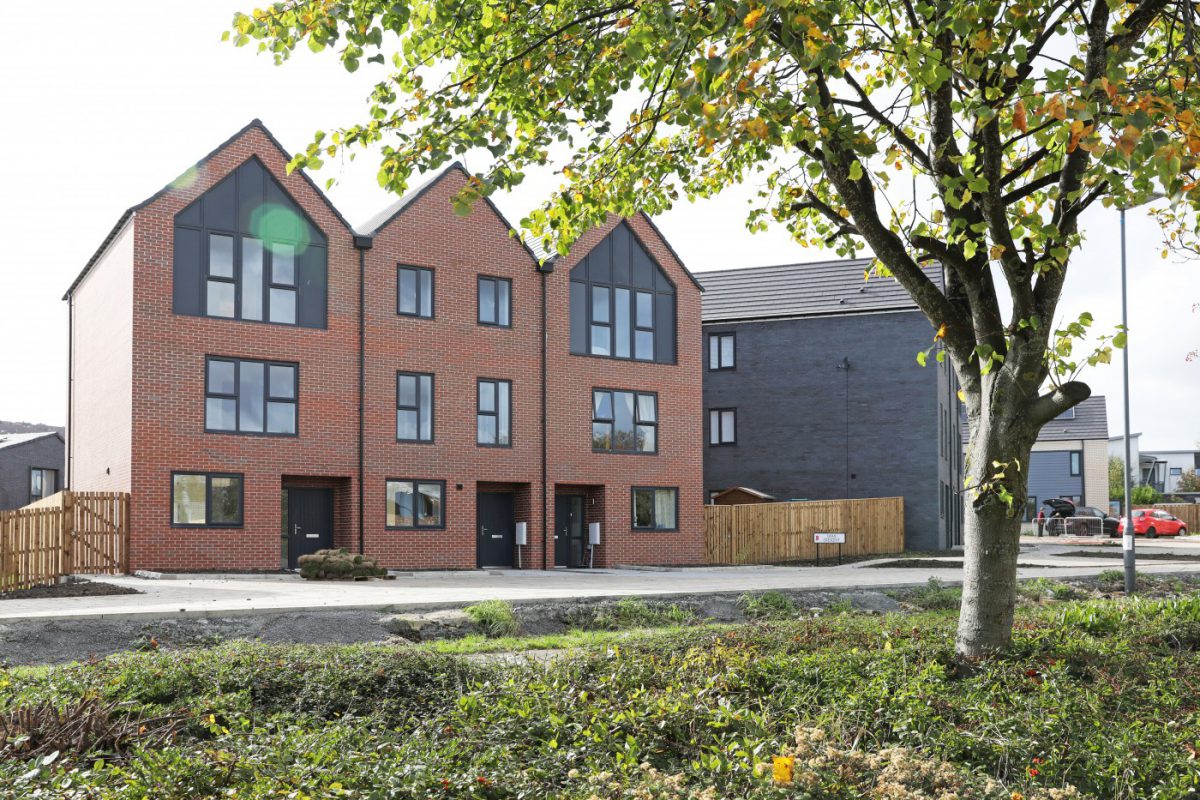Gateshead Innovation Village (GIV) is a live research and construction project led by Home Group and is supported by Homes England; delivery partner ENGIE Regeneration; project manager, Elliott Associates; and architect, IDP. The project was developed to test and review new and innovative ways to construct quality homes quickly to support the demand for new homes across the UK. Home Group’s internal design standards demand light, volume of delivery and high design quality to create homes that people love to live in.

The project involved building a new village of 41 energy efficient homes using new and dynamic construction solutions. A combination of 16 volumetric houses, 19 modular houses and 6 traditional houses were constructed. Modern methods of construction (MMC) were employed and included steel-based modular, timber-frame modular, light-gauge steel frame, panelised light-gauge steel frame and an aerated concrete panelised system. Through strong design Home Group ensured the village does not resemble a pilot scheme and as a result has created a new community with a strong identity. The mixture of MMC and traditionally built homes will enable Home Group and their partners, Building Research Establishment (BRE) and Northumbria University to robustly compare the energy and smart technology performance of each house type.

By investigating new, more efficient, speedier ways to build quality homes, Home Group aims to offer greater confidence in utilising MMC at scale and inspire change across the UK housing sector. Given the scale of housing need, combined with skills and sustainability issues in traditional construction, this project recognises the need to do things differently – GIV was born out of this necessity and Home Group understood collaboration with key partners was the only way to make this project work.
GIV was also designed with the transition to carbon zero firmly in mind. An innovative approach to sustainable energy solutions has been adopted, testing different solutions alongside traditional building methods. The installation of ground source heat pumps, thermal stores, air source heat pumps and infra-red electric heaters enables a comparison between heat source and house types to determine the most energy efficient and cost-effective combinations.

An important aspect of the project is the research BRE and Northumbria University are undertaking to look at the construction efficiency, effectiveness and sustainability of the development. The results of this study will be shared across the world to drive change in construction methods to support the needs of a changing world and environment. At the end of this research, Home Group will understand the investment required for these technologies compared to the potential life-cycle costs, emission performance and ultimately the impact on their customers; all of which will form their design and planning for future housing developments.
The development of Gateshead Innovation Village could ultimately affect the future of housebuilding in the UK and start to form an understanding of how we can address issues such as fuel poverty. This is not only about saving money, but the emotional wellbeing that comes from living in a warm home in an attractive neighbourhood.

Key achievements
- The Government’s 2025 Future Homes standard has already been achieved on the project, positively impacting on the transition to carbon zero.
- All of the homes are fully occupied with positive feedback received from residents living in this new community, many of whom are reporting reduced fuel bills.
- Close collaboration between client, contractor, professional team and all other key partners enabled the success of the project.


